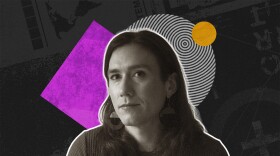Like many immigrants, George Lee strived for the American Dream through a belief, instilled in him by his parents, that he had to be better than anyone else — or, as Lee’s ballerina mother Stanislawa Lee put it, “10 times better.” That’s both the theme and title of a new documentary, Ten Times Better, by journalist Jennifer Lin. It follows Lee’s journey to being the first Asian ballet dancer for the New York City Ballet in 1954. Ahead of the film’s local premiere at the Beverly Theater on May 7, Desert Companion sat down with Lee to talk about his dance career, what made him put down roots in Las Vegas, and why he brings the same “10 times better” ethos to his current occupation as a card dealer at a downtown casino. An edited excerpt of his conversation, which was facilitated by Lin, follows.
What surprised you about Las Vegas when you first moved?
Well, I will say 1961 was nice and quiet … There were only a few casinos when I was here the first time with the Flower Drum Song at the Thunderbird Hotel … Now it’s so busy, (since) all the Strip area was rebuilt and so many casinos are there.
What made you stay all these years?
After I finished my last show with the Alcazar de Paris, I figured it was time for me to retire because I can’t dance anymore. In New York, the Broadway shows were not the same (anymore) like the old days. So that’s why I (wanted) to stay here … and get a new job … There’s nothing for me to do in New York.
What was the dance community like in Las Vegas back then?
There was a very small (dance) company. They just started and (couldn’t) compare to New York yet. When I was here in the ’80s, I was working swing shift, but during the day I would take some ballet classes (at) UNLV. Those days back then in the community were quiet and not as busy.
How did you first get into card dealing?
The last time I was here with Alcazar de Paris, my friend and his wife were in Flower Drum. The wife said, “Well why don’t you learn something new, like learn how to deal … You don’t want to go back (to New York) … so go to school and learn how to do blackjack.” And that’s what I did. I learned during the day and (did) a show at nighttime … But I figured I’ve got to go back to New York then because maybe there’s nothing going on (here). Then at the last minute, when I was ready to go home, 4 Queens Casino rings me and says there’s an opening. I make a decision: Take a new job and then see what happens, because I know in New York I will have nothing to do. So, I went with blackjack and that’s why I stayed here.
When you’re dealing, do you ever tell people your story?
No, I never tell anyone anything. I just do my job of dealing the cards. (The wife of) one of my players knows me somehow … checked on the computer to find George Lee. They found out that I was a dancer … But I never tell my stories. We talk about everything, but not me, not my personal thing.
What advice would you give young Asian American dancers and artists who are pursuing their dreams?
I always say they’ve got to be patient and give (it) a lot of work and try to do better than anybody else, than any dancer … Like my mother told me, ‘You think you’re the best one, but there’s always somebody better than you.’ … So, you’ve got to do your best … That’s the best thing I can advise.
Your mother told you that you must be 10 times better. Is that belief still stuck in your brain and ingrained in your way of life?
Yes, anything I do I try to do as best as I can, you know, 10 times better. Even in dealing I do the best I can … It’s the same with dance.
Do you think there are a lot of Asian Americans who feel the same way, that they have to be 10 times better than white American to prove themselves?
I’m assuming they do because it is hard for us to break in (since) they look at us like we’re the third world … (people) don’t expect it to be an Asian thing to be dancing in America. I think they are accepting us more than before.








